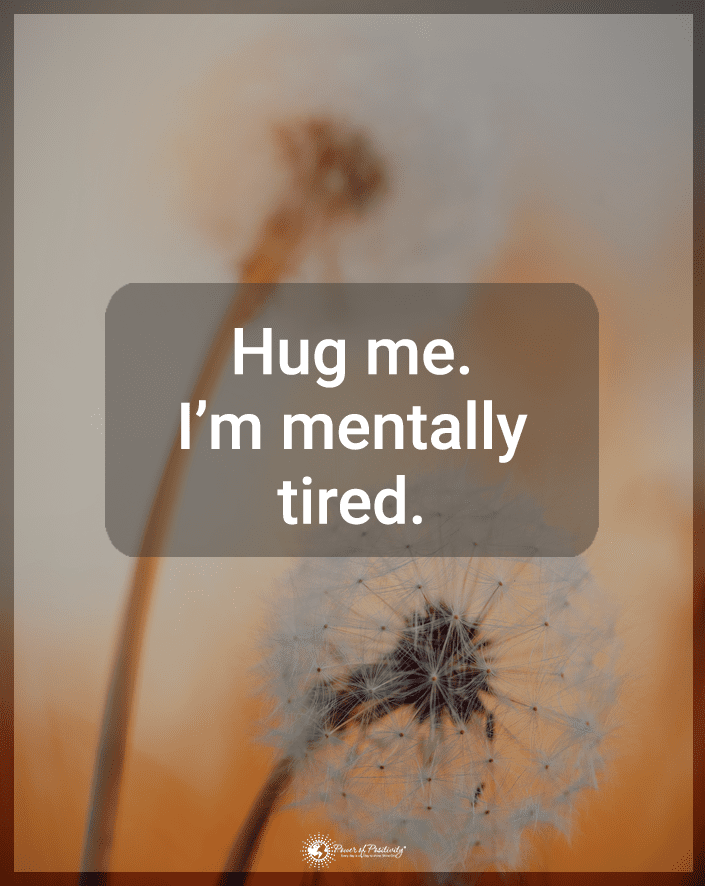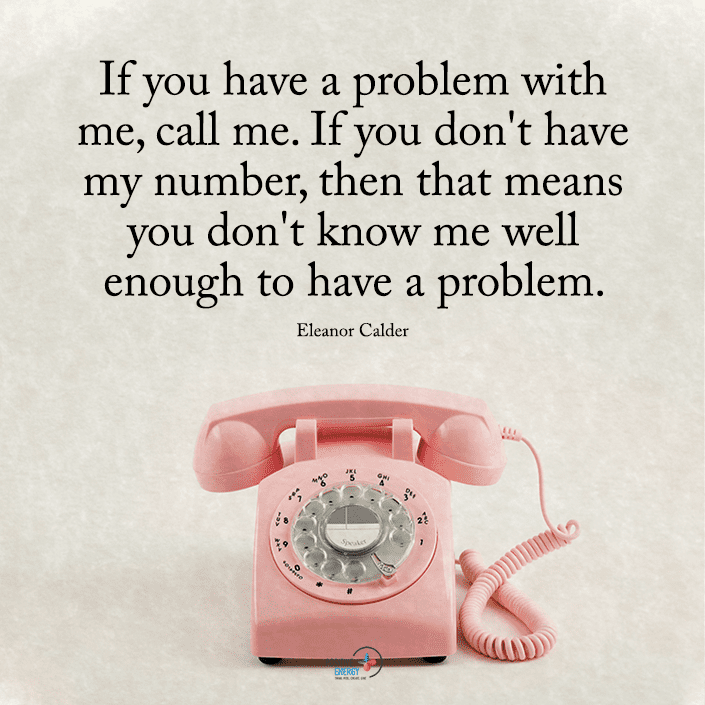When talking to someone with anxiety disorder, you might not know what to say and struggle with understanding. Some things you say can cause more harm and isolate the person you’re talking to. Language impacts those with anxiety disorders, potentially leading to more damage.
Understanding how some phrases negatively affect someone can help you offer better support. It also helps create new things to say to support and offer empathy to the person experiencing an anxiety disorder.
You likely have the best intentions when you talk to a loved one with anxiety. However, some phrases you think will help can harm the person instead. It might make them question themselves and cause them to shut down emotionally.
By avoiding damaging phrases and using more supportive language, individuals can help those with anxiety disorders feel more understood and supported. It can help you communicate with them, inspiring trust, open-mindedness, and flexibility.
Never Say These Hurtful Things to Someone With an Anxiety Disorder
Some things you might think will help can hurt a person with anxiety or make them worry more. Learning what to avoid saying can make a difference in healthy communication and supporting your loved one. Here are some ideas of things you shouldn’t say:
1 – “Just relax.”
An anxious person won’t experience relaxation or calmness if you use this phrase when they’re experiencing anxiety. Instead, it causes invalidation and isn’t helpful as it shows a lack of understanding. It oversimplifies anxiety disorders, implying they can turn their feelings on or off.
Telling someone to relax can make them experience shame because it causes them to feel like they aren’t trying hard enough. Avoiding this phrase can help you find a way to communicate how much you care.
2 – “Get over it.”
Using this phrase dismisses someone’s feelings because it is a form of invalidation, causing harmful minimization. When this happens, it can lead to overwhelming shame or negativity. It implies that their feelings shouldn’t affect the person’s daily life and that they’re wrong to let it.
3 – “What’s wrong with you?”
This phrase shows judgment, creating a stigma that blames the person experiencing anxiety. It can make them feel shameful and create self-doubt that stands in the way of seeking help and support. Their feelings don’t mean they’re flawed or defective, but this phrase can make them feel that way.
4 – “You’re being irrational.”
Telling an anxious person they’re being irrational is a form of invalidation. Minimization and dismissal can make it seem like you don’t believe their emotions are real.
This phrase can create shame and self-doubt as they begin questioning their thoughts. It doesn’t acknowledge the feelings that already overwhelm someone experiencing the emotions.
5 – “It’s all in your head.”
Telling someone that their anxiety is all in their head is incredibly harmful. It causes invalidation and negativity because of the minimization. This phrase can also make them question their reality, creating more harm to their mental health.
Using this phrase is a form of minimization that implies the person’s feelings aren’t real and shouldn’t interfere with their daily life. It also increases harmful feelings of shame or self-doubt, worsening the experience. Since you want to help them, you should avoid this phrase or anything similar.
6 – “Just think positive.”
If thinking positively was as easy as someone telling you to do it, everyone would experience it. Those with anxiety disorder can’t easily switch their feelings or mindset, and this phrase oversimplifies it offensively with minimization.
Even those without anxiety symptoms can struggle with negativity, so it’s best to avoid this phrase altogether. It also can make someone feel like they aren’t trying hard enough, leading to invalidation and increasing feelings of shame and inadequacy.
7 – “I know how you feel”
When you use this phrase, you might think it’s helping you be relatable and show empathy. However, everyone experiences things differently, especially those with anxiety disorder.
Instead of this phrase, you can say something that acknowledges the uniqueness and individuality of their experience. It’s essential to recognize the complexity as it allows you to foster a sense of empathy and validation. You want to create a supportive and validating environment that the person feels comfortable opening up in.
Replace Those Hurtful Phrases With Those That Show Support and Understanding
Instead of using hurtful phrases when talking to someone with anxiety disorder, you can find supportive things to say that improve the connection. They’ll be more comfortable opening up to you and considering your device when you say beneficial things. Here are some ideas:
“How can I support you?”
This question offers support and validation to someone with an anxiety disorder. It helps create an environment of safety and trust while demonstrating a willingness to show empathy and offer help.
This phrase also promotes a sense of empowerment and self-care so the person recognizes their options. They’ll know they’re not alone and understand they can get through the experience.
“It’s OK to feel anxious.”
Acknowledging that it’s okay to experience their emotions shows a sense of empathy while promoting the normalization of anxiety. Everyone experiences different feelings and understanding that makes them feel comfortable with you.
This phrase promotes validation and helps your loved one know you’re supportive. Telling someone it’s okay to feel anxious reduces feelings of shame and inadequacy while showing empathy and compassion. They’ll know you want to be there for them, making them more likely to be open with you.
“What do you need right now?”
Asking someone with anxiety disorder what they need shows your support and empathy. It also shows that you recognize their individuality because you don’t assume you know.
Not only will they know they’re not alone, but they’ll recognize that there are other options. Asking this question promotes collaboration and support, allowing them to see they’re not alone and encouraging self-care.
“I am here for you.”
Sometimes letting your loved one know you’re there for them is all the support they need. It offers validation and empathy to create an environment of safety and trust. It shows that you want to understand and help them while promoting empowerment and self-care.
“What would help you feel more comfortable?”
Asking what the person needs shows you’re helpful and supportive as you express empathy. It acknowledges their individuality while also showing support.
This phrase helps someone consider what they must do to care for themselves while reminding them it’s possible. It’s also another way to let them know they’re not alone, as it promotes collaboration and strength.
“I belive you.”
This simple phrase means so much to someone with an anxiety disorder as they know you support them. It allows them to experience validation and empathy while encouraging them to trust you and feel safe in your presence.
When they know someone believes what they’re experiencing, it helps them feel empowered and encourages self-care. Otherwise, they’ll feel isolated and withdrawn from those around them. It can prevent them from getting help and finding healthy ways to move forward.
“I’m listening.”
Sometimes all your loved ones need is to know someone will listen to and support them. Active listening promotes validation, safety, and trust in your relationship and shows empathy. It also shows that you’re willing to gain understanding to help them find empowerment and focus on self-care.
“Thank you for sharing with me.”
Expressing gratitude for someone opening up to you helps them experience validation and support. It shows that you acknowledge their courage and vulnerability in sharing what they’re going through. It also encourages them to recognize that they can help themselves through hardship.
“You are not alone.”
You don’t have to tell someone you know how they feel to let them know they’re not alone. When they know you’re there for them, it’ll foster feelings of support, validation, and empathy. It also promotes a sense of connection and community while reducing feelings of isolation and shame.
“How can I help you take care of yourself today?”
This question shows that you’re willing to help someone but implies they can care for themselves. It offers support while encouraging self-care and individuality. Encouraging someone with anxiety to practice self-care can offer them a sense of empowerment. It also validates their feelings while promoting support.
“It’s OK to take your time.”
Overcoming hardship and healing from trauma takes time, and this phrase shows that you support the person going through it. When it’s someone with anxiety disorder, reminding them that it’s okay can offer validation and promote self-care.
It allows your loved one to feel less pressure and urgency to get through their feelings. This phrase shows support and validation while reminding them there is no rush.
Final Thoughts on Language That Offers Support for Someone With an Anxiety Disorder
There are some things you shouldn’t say to someone with anxiety disorder. When you know what not to say, it helps you find other options that show support. Switching to things you can say instead shows empathy toward the person with anxiety disorder. It also shows that you’re understanding and willing to help however you can.

















 Community
Community

